"we are made to create"
poet, essayist & memoirist Heather Lanier on her writing and Centering Prayer practices and how they help her access Something Bigger ✨🙏🏼
This is a Beginner’s Mind interview, a series that explores the intersection of mindfulness and creative practice. Zen master Shunryū Suzuki Roshi said, “In the beginner’s mind, there are many possibilities; in the expert’s mind, there are few.” This series shines a light on the practices that sustain people in their daily lives and open the path to new possibilities. Subscribe below to make sure you don’t miss any future interviews. ✨
I’m a superfan of ’s nonfiction and poetry and a dedicated reader of her substack, The Slow Take, and if you saw me this summer, I probably talked your ear off about her memoir, Raising a Rare Girl. I loved the book so much that about 2/3 of the way through, I started reading it more slowly because I didn’t want it to end.
I found Heather’s work just when I needed it. I was writing about my spiritual practices and trying to find a way to weave together my love for Zen meditation and Centering prayer. I read Heather’s poetry collection Psalms of Unknowing and felt a sense of deep connection. I was moved by the way she interrogates her Christian faith, while also writing psalms of praise and love and grief.
I admire Heather’s ability to connect her exploration of spirituality to her commitment to writing about the beauty and terror of the world with clear eyes. Her writing encourages me to sit with the complexity and tenderness of my own big questions and, as she says, to “access Something Bigger.” In this conversation, Heather shares her writing and meditation practices with such honesty and humor. Read on, friends (& if you’re reading this in email, click HERE to read in full!) ✨🙏🏼
What are your writing/creative practices? Do you have any rituals or habits that help you?
What perfect timing. I feel like I’m beginning all over again lately, and I’ve felt that way for months. I make a little progress on something, then need to put it aside for a while, then try to start the engines back up. All year, it’s felt like I’m “beginning again.” I’m not sure why my writing has been in such fits and starts, but somehow, slowly, I’ve still managed to finish things. So I’m not spinning wheels. Just struggling with routine.
My lack of routine might be partly because I’m not interested in making a task or a “to-do list” out of my writing life. I’ve spent plenty of years in my twenties making myself hustle—cranking out 500 to 1,000 words a day, or forcing myself to wake at 5 a.m. so I can work on a book before my paid job. Those were good times. They taught me that I can in fact rely on myself to make creative work. That I do in fact have discipline. But lately, I’ve needed a gentler approach, one not so hooked on accomplishments.
I prefer to think of writing not as productive time, but as devotional time. So my writing space literally feels like a bit of an altar, with a cross and a bodhisattva and special rocks and shells.
There’s even a Funko Pop of Daveed Digs in Hamilton, pointing at me—which somehow feels spiritual, although I can’t say why.
I also have an orienting quote above my desk from my pal, the writer Sonya Huber. Here’s the quote:
“It is very good for me as a whole person to have a relationship with writing where it is the safe space that I can play…. Sitting at my desk for the hour of writing is the only place I am free of conflicts, targets, outcomes, pain, and evaluation. As a sort of spiritual well-spring, this practice keeps me in touch with that part of my soul and the belief that a non-outcomes mindset is good for humans. It’s good for me. It’s centering, it’s a daily re-orientation.”
Isn’t that good?
But I feel like I should offer some practical things. So: when I start writing, I often listen to a certain playlist—I’ve been using the same one for a few years. And when I end, I make a note afterwards on a massive, running table created in a Word document. The table has four columns, so I can track the following: how long I wrote, what I did, what I want to say about it (e.g. resistance, discoveries, questions), and what I hope to do the next time I write. Each day, I just add a new row of entries into the table. I’ve been keeping this table for seven years. The document itself is now 129 pages long, and I will never reread it! It’s basically just bread crumbs for when I sit down the next day. It’s especially handy when several days go by and I’ve forgotten where I am with different projects.
Keeping track also helps me see the fits and starts. I make note of whether it was hard to stay off email during the writing time. I also get to see the history of my fluctuating feelings. There’s usually a point at which I think a project will never come together. There’s also usually a point at which I wonder why I’m writing this thing at all. There’s also, praise be, a day when I’m super excited, when the deeper urgency of the project has revealed itself, and that deeper urgency really matters to me. So tracking that process helps me hold it all loosely. It helps me just keep showing up, despite the ups and downs. Kind of like meditating.
What are your mindfulness practices? Do you have your own definition or way of thinking about mindfulness? Can you describe your practices and what they bring into your life?
The word “mindfulness” has always made me kind-of grumpy, and I’m not sure why. When I hear it, I think of those days in my twenties when I tried to wash dishes “mindfully,” without listening to the radio or whatever. Just trying to wash the dish, to fully experience the suds and water. It was so boring. Maybe I misunderstood mindfulness.
But I do have practices that are cousins to “mindfulness.” I often start the day with just the smallest amount of yoga—like child’s pose. I get on the mat and get curious about who has shown up today, and what she carries. After a few minutes of this, I meditate. This is my main spiritual discipline. I do a Christian form of meditation called Centering Prayer, which people can read more about here. It’s not so much a practice of “mindfulness” as much as surrender.
And I try to practice the daily Examen, which is an Ignatian prayer where you look back on your day and notice where you felt connected to Divine Reality, where you felt far from it.
Do you have a mantra or motto related to your creative/mindfulness practices/life?
Well, in addition to the Sonya Huber quote, I have what I might call some “anti-wisdom” above my desk! It’s a pink postcard that says, in all black caps, “WE SEE WHAT YOU ARE DOING AND WE ARE VERY IMPRESSED.” It makes me laugh.
I love accolades—always have. I’ve found much of adult life disorienting because of the lack of certificates and prizes. Where are the awards ceremonies in your forties!? Please, someone, notice that I unloaded the dishwasher twice in one day! So to have this Benevolent Big Brother postcard above my desk, constantly affirming me and whatever I’m toiling at, gives me a snicker.
It’s an acknowledgment that, Yes, I see you, Ego. I know you’re there. I know you have the insatiable longing for more love, more praise. Here’s your bone.
But it’s a joke too because I know the only good writing has to come from somewhere bigger than my ego, somewhere beyond it. The only good things I’ve written have always had their own missions—ones that transcend my dumb egoic desires. And this is true even when the writing is still technically about me (as it often is. I write a lot of personal essays.) This is actually why I write: to access this Something Bigger. To commune with this Deeper Reality, which is larger than my ego or “small self.” I’m not entirely in control when I’m writing. I’m letting the Spirit and my subconscious speak. That’s why I consider it devotional. That’s why I’m at the altar.
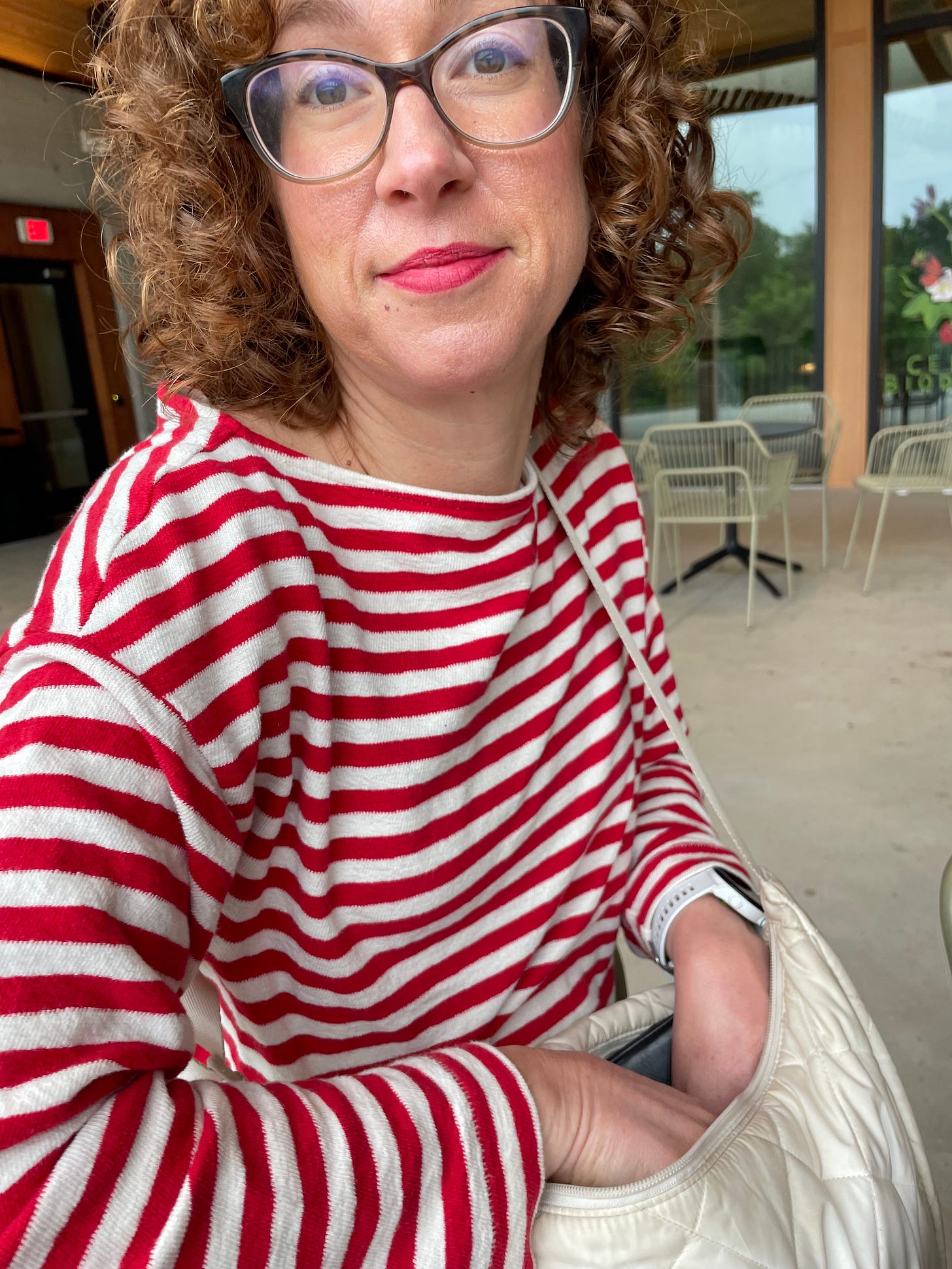
What helps you when you get stuck with your creative/writing practice?
Lowering the stakes. For instance, I suddenly have a new essay about bikinis that I’d like to write. I thought of it while I was on a run this morning. I didn’t know it was an essay until I stopped on the asphalt, all sweaty, and dictated an idea into my phone via a text message to myself. Now that I’m at my desk, I’m overwhelmed by the prospect of writing this essay—I have too many other projects on the docket. But maybe later today, I’ll just retype the text message into a Word document. Doing this will naturally result in me adding sentences, letting it get bigger. Something might happen. An essay might grow. Or it might not.
So I guess there are two strategies there: keep the stakes low, but also try to catch the ideas when you can, without judgment.
Often, my stuckness is about seeing too big a cake and thinking I have to swallow it whole. I’m an all-or-nothing person. So I give myself smaller tasks all the time. “Find the scrappy draft of that poem in your journal and type it up.” Or, “Write three different messy ending paragraphs to that essay you can’t figure out how to end.” These are the kinds of notes to myself in the massive Word document. The daily devotion accumulates.
Do you see your creative and mindfulness practices as connected? In what ways?
In my spiritual tradition, there is a Deeper Mystery hidden in our inmost being, an Infinite Source of all that is. A Divine Indwelling. Some call this God. And constantly surrendering to this Source, little by little, for thirty minutes or so each day in meditation, is good for us. It’s good for me. I’m echoing Sonya’s quote here, about daily writing. “It’s good for me.”
In my writing, I access the Deeper Mystery in a different way. I let go of my plans, get curious, and find myself surprised by where the writing process takes me. Both writing and meditation involve surrender. They both involve showing up beyond outcomes. With writing, I get to follow the subconscious. With meditation, I witness the subconscious and release it. In both instances, the material of the subconscious emerges, but Reality reveals itself as much more expansive. In both practices, I get a glimpse of this larger Reality.
What advice would you give someone who is trying to start or restart a creative or mindfulness practice?
One of the teachers of Centering Prayer, Cynthia Bourgeault, says that the practice of Centering Prayer “isn’t hard to do. It’s hard to value.” I find that rhyme helpful.
You could maybe say the same of daily writing. Not hard to do. Just hard, sometimes, to value. Neither of these practices is rewarded through capitalism, or even secular self-help (where the ego or “small self” is still very much the center of the project). “Why do this? Can you commoditize this? Win the praise of your people? Feel constantly awesome as a result?” No and no and no. The culture’s yardsticks can’t quantify either our creative or our spiritual practices.
I meditate to get beyond the version of myself that wants to know “Why do this?” In other words, I meditate to get some space from the ME that often asks, “What’s in it for ME?”
But that doesn’t make sense in our culture.
So if you’re having trouble starting or restarting your creative or spiritual practice, it might be because of cultural noise. You’ve got a loud, off-key chorus of voices telling you that you should be turning your button-collecting hobby into a profitable side-hustle or that you’re not really a writer unless your book is for sale at LAX.
It’s not true. We tend to our spiritual dimensions because we know, deep down, that we are vapid without them. We tend to our creative lives because we know, deep down, that we are made to create.
It helps to find some like-minded people who can remind you of your deeper why. Those people might be folks you know in real life. But you can also turn to the work of writers and artists you admire.
Are there any books / writers / teachers / approaches that have been transformative for you that you would recommend to readers? Can you speak briefly about why?
I really love Elizabeth Gilbert’s BIG MAGIC. I assign it to my creative writing students all the time, so I reread it with them, and I’m surprised that each time, I still love it. It’s a fun, accessible guide for creative living.
Now I also love a new book, Maria Bowler’s MAKING TIME: A New Vision for Creative Life Beyond Productivity. It’s a delightful antidote to the tyranny of productivity culture. Bowler is a genius.
And if folks are interested in Centering Prayer, Thomas Keating’s Open Mind, Open Heart is a great start. I reread that book too.
A Prompt from Heather
I’m a fan of lists. They’re low-entry. Make a list of what you’re worried about. Make a list of what you did and saw yesterday. Make a list of strange smells you sort-of like. (Gasoline, anyone?) Make a list of what’s beautiful.
Actually, that’s a great prompt for writing and mindfulness: What’s a beautiful thing you saw recently? An artist’s residency application asked me that question, and it was after the winter of terrible executive orders. I was stumped. But then I remembered: I watched one man dig fallen leaves out of another man’s hoodie. Beautiful.
What beautiful thing did you witness recently?
Heather Lanier is an essayist, memoirist, and poet. She’s the author of the memoir, Raising a Rare Girl, along with three poetry chapbooks, Erasing the Book of Pregnancy, The Story You Tell Yourself, and Heart-Shaped Bed in Hiroshima. Kirkus Reviews called her full length poetry collection, Psalms of Unknowing, “a powerful poetic reckoning with motherhood and religion.” Her nonfiction has appeared in The Atlantic, TIME, Salon, The Sun, Longreads, The Wall Street Journal, and elsewhere. A recipient of an Ohio Arts Council Individual Excellence Award, a Vermont Creation Grant, and a New Jersey Artist’s Fellowship, she works as an Assistant Professor of Creative Writing at Rowan University. Her TED talk, “‘Good’ and ‘Bad’ Are Incomplete Stories We Tell Ourselves,” has been viewed three million times and translated into 18 languages.
More from Heather ✨
I highly recommend Heather’s free newsletter, The Slow Take, where she shares occasional essays about the strange beauty of being human.
Learn more about Heather’s work at her website
Follow Heather on Instagram @heatherklanier
Get a signed copy of Raising a Rare Girl HERE
Order a signed copy of Psalms of Unknowing HERE
Order a copy of Erasing the Book of Pregnancy HERE
Watch her TED talk, “Good and bad at incomplete stories we tell ourselves” (it’s incredible)
Listen to Heather’s interview with Kate Bowler HERE
Catching up with Be Where You Are contributor alums
Denton Loving’s recent poetry collection, Feller, has been gathering accolades all over the place—here’s one: Feller is an Editor’s pick at Booklife & garnered this glowing review.
I love what shared on the Artists for Joy podcast with Meridith Hite Estevez. If you haven’t read Making Time yet, Heather Lanier agrees it’s a must-read!
I’m grateful to for writing this piece: “we’re not doing another mommy wars.”
Before you go, will you take a moment to hit the heart button or leave a quick comment? This one simple action is incredibly effective at helping to spread the word about Heather’s work!
🌱 Be Where You Are is 100% reader-supported. You can support this work by becoming a paid subscriber for 5$ a month or make a one-time donation here if you value this work but can’t subscribe. Or, just send it to a friend! 🌱
Be Where You Are is a newsletter about how to use writing and mindfulness to live more fully where you are. To reply to this newsletter, just hit reply. I’d love to hear from you! You can also find me on Instagram/Facebook/Bluesky or find more info at my website.



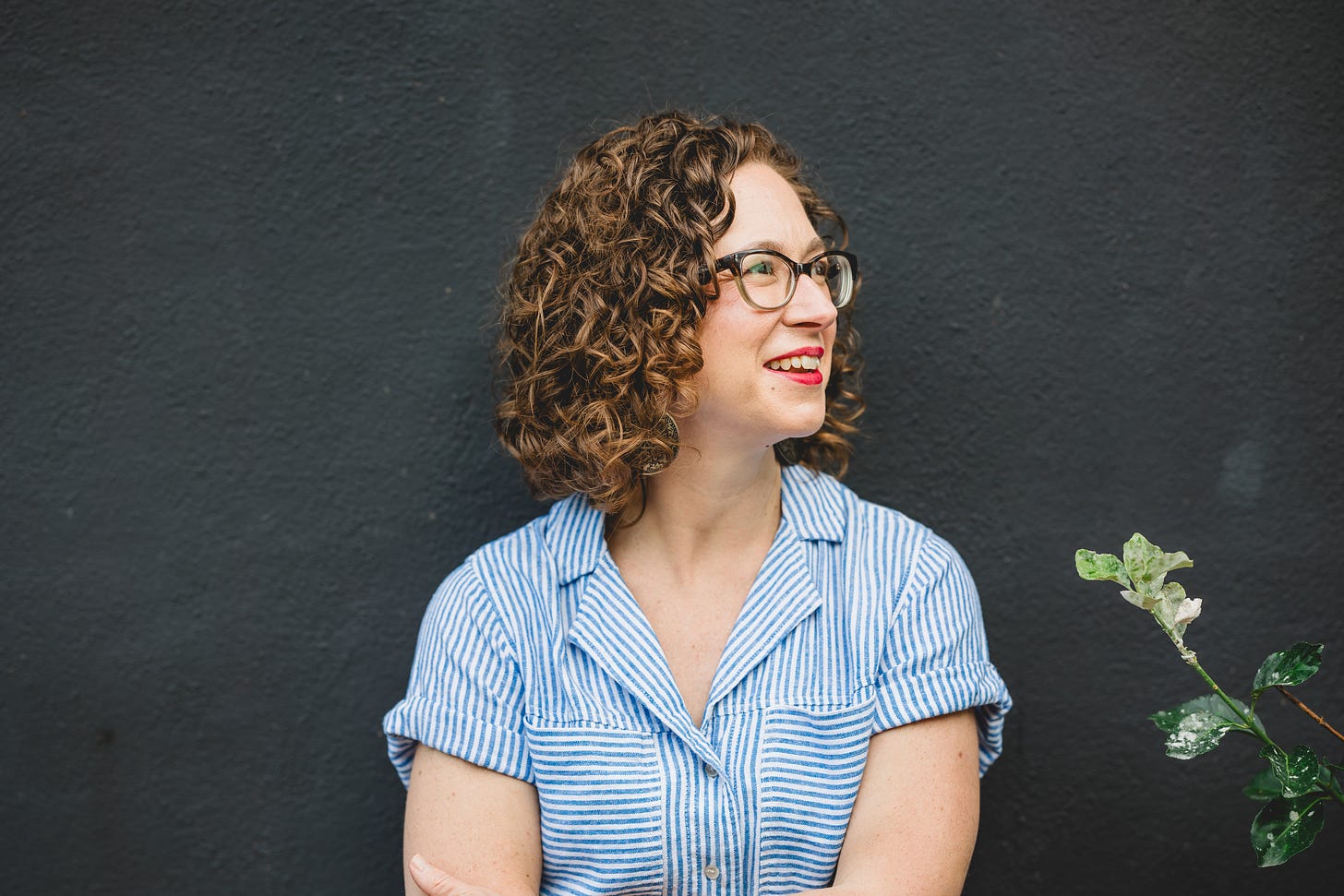
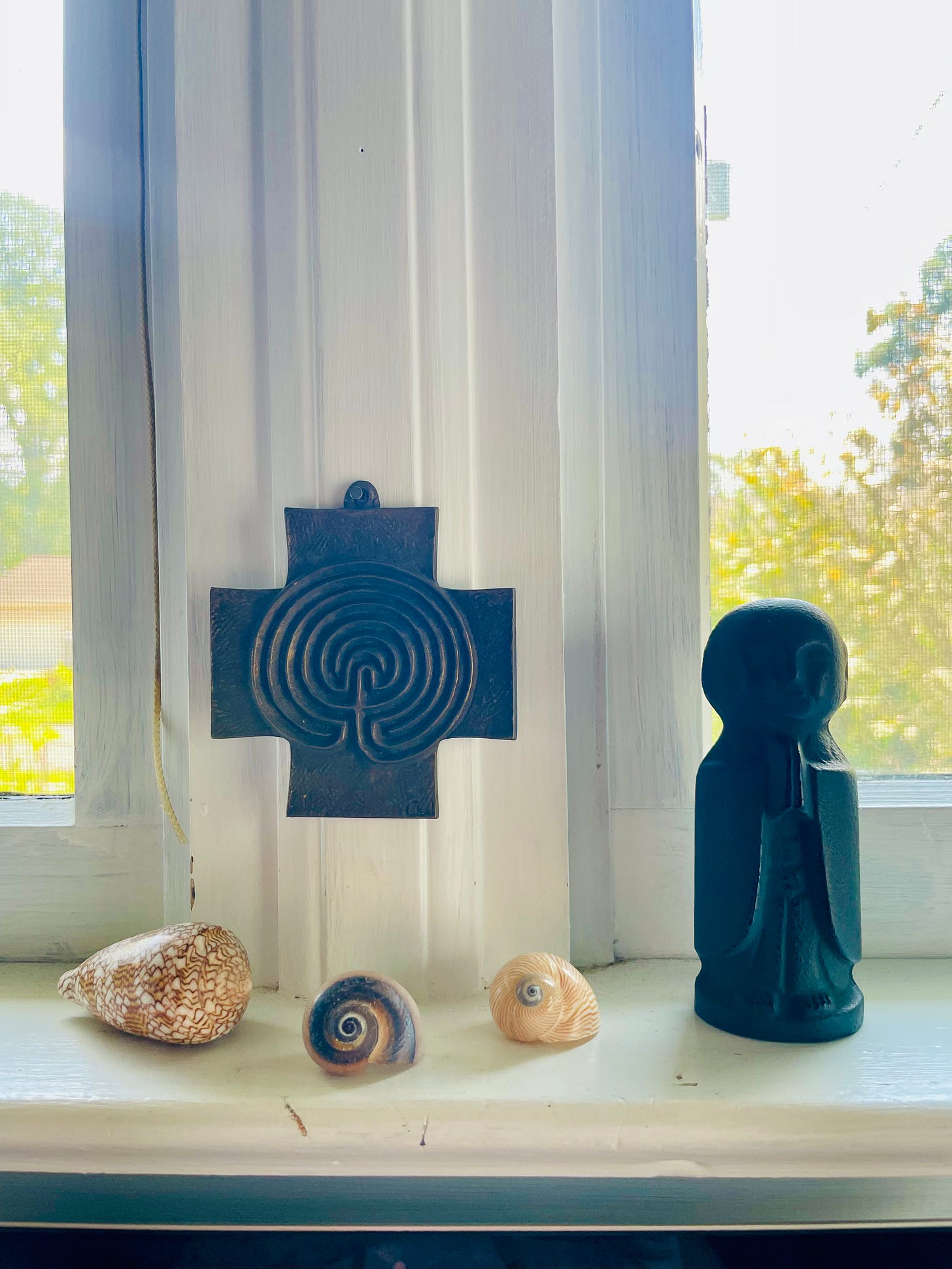
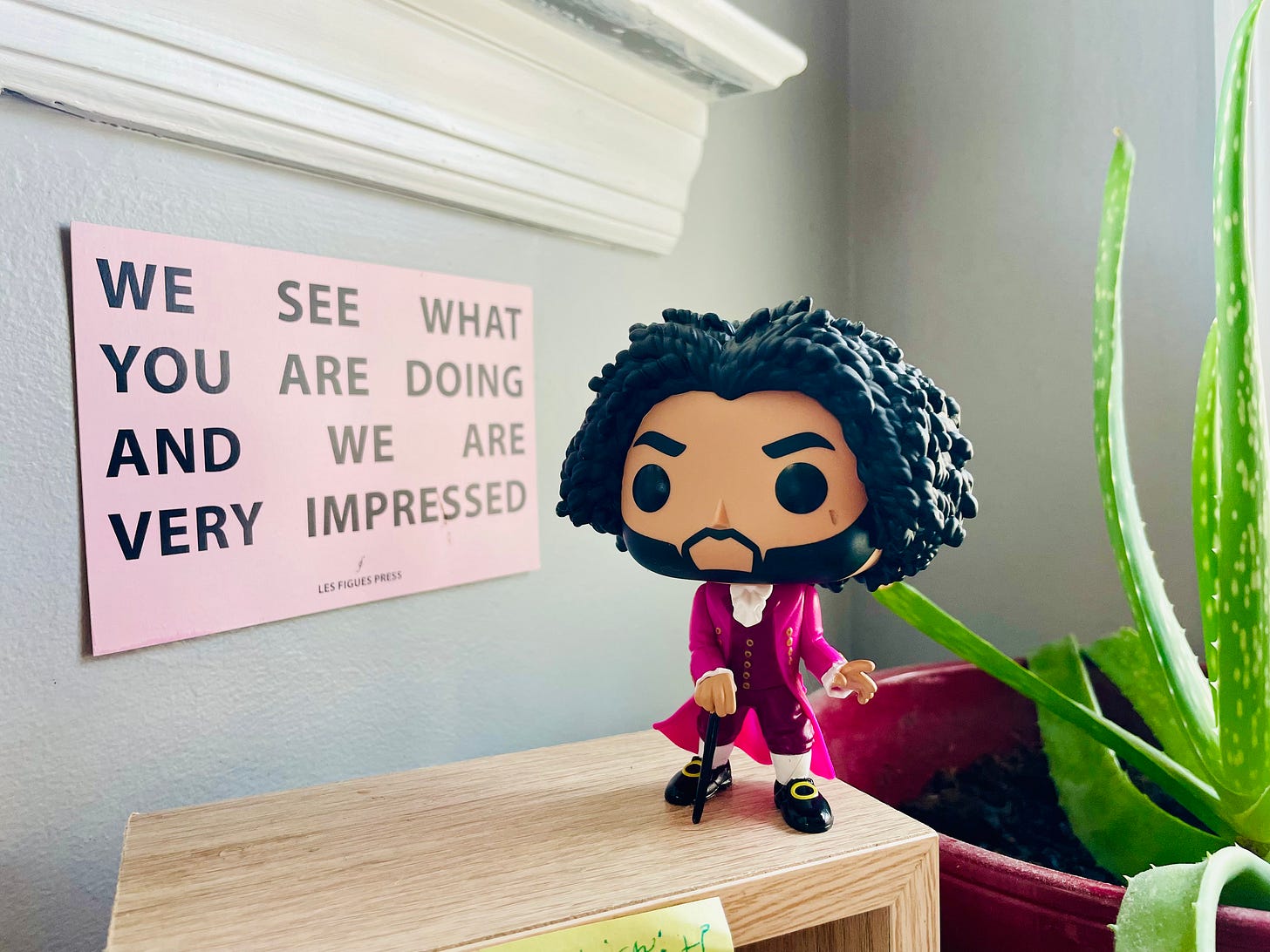
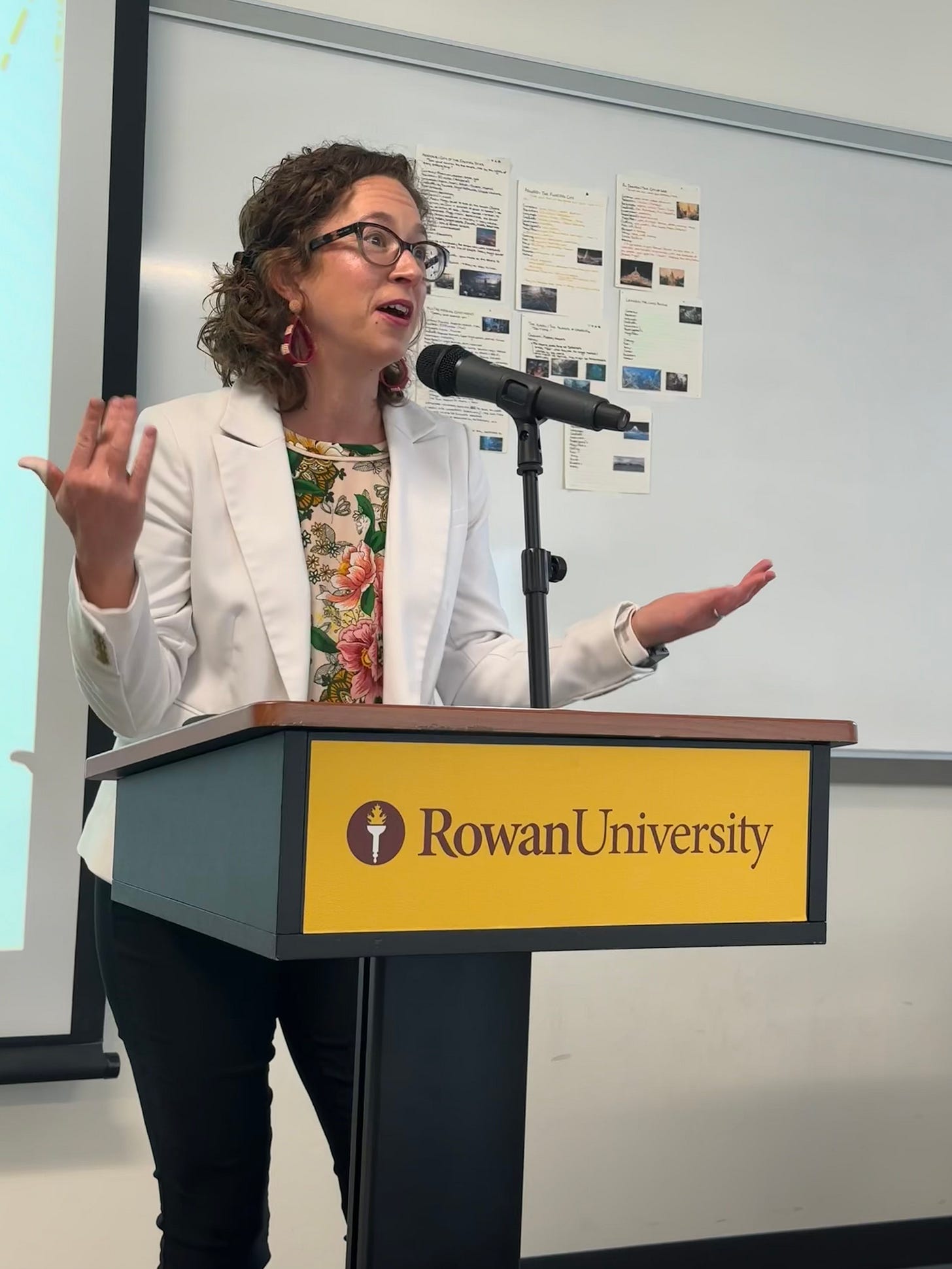
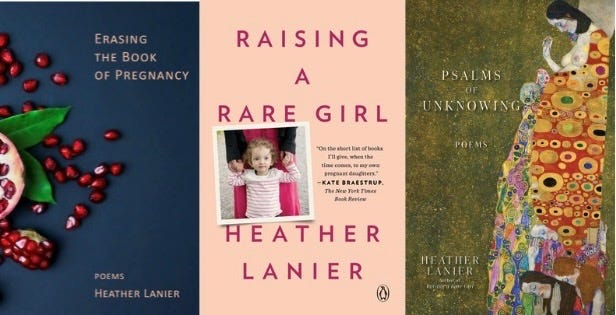
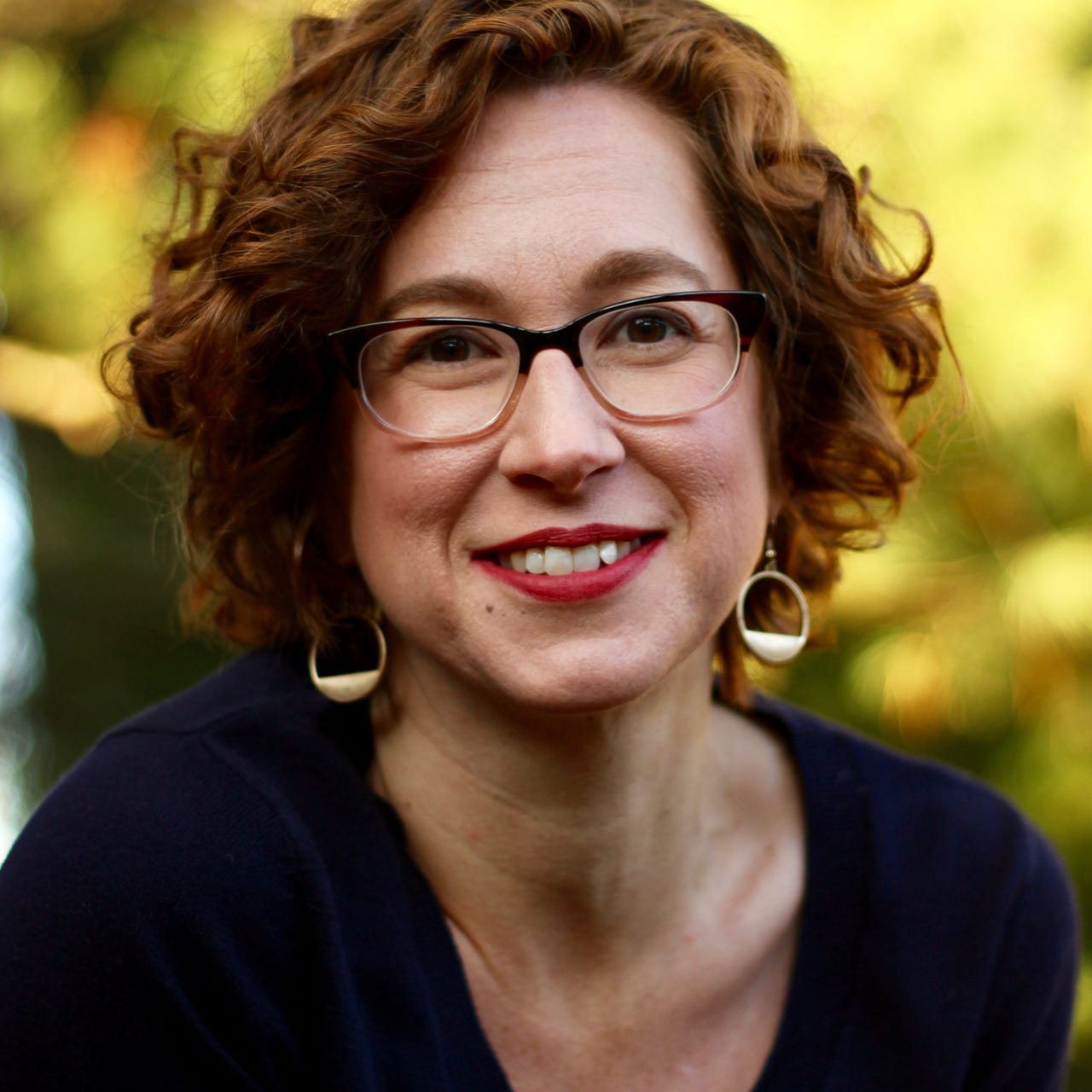

two of my favorite people in conversation! I was really trying to read this slowly, but I think I will also save it and come back to it later--so many gems in here.
I admire Heather’s writing so much! Saving this so I don’t lose track of all the wisdom she offers here!